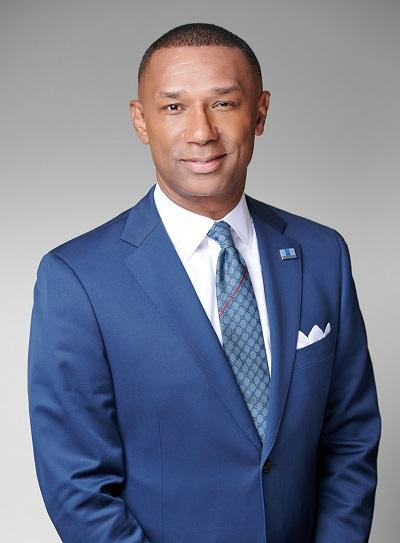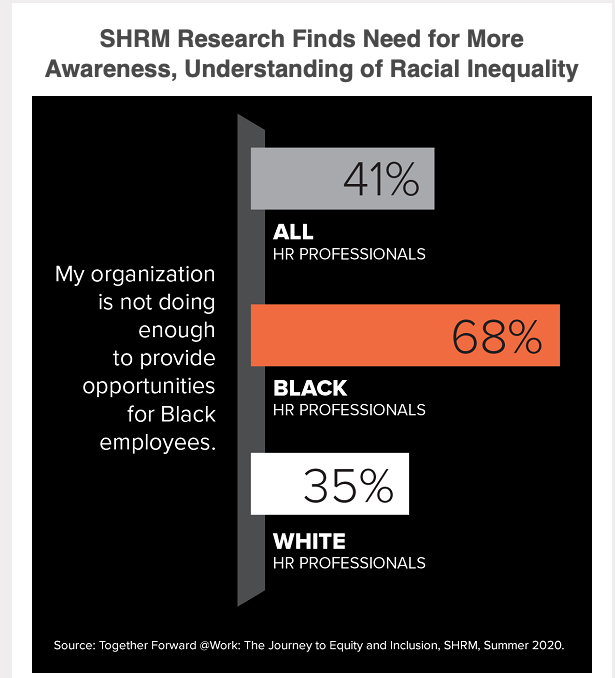By Johnny C. Taylor, Jr.
There is no denying 2020 has delivered an abundance of challenges for all of us, both personally and professionally. Just when it looked like we could start planning for life after COVID-19, and begin to navigate a shaky economy, the explosive pain of racial injustice contorted our society.
Unlike the novel coronavirus, this challenge was not new. These issues have long existed, hidden under the table, in darkness and denial.
This time, we can’t deny it. Racism persists in our society and is felt in our workplaces. Black workers do not believe they are treated the same as white workers, and those perceptions are being documented by SHRM.
Our new research report, released today, points to the striking divisions we’re experiencing in our workplaces around race. The report, The Journey to Equity and Inclusion, unveils critical disconnects between Black and White American workers.
Respect is an important benchmark for inclusion at work, and we found feelings of worth are correlated with skin color. All in all, only 18 percent of White workers feel they are not respected and valued at work. However, one-third of Black workers feel that way.
HR professionals, who are generally more attuned to bias at work than others, were even more divided on the subject. Almost half of Black HR professionals feel discrimination based on race and ethnicity exists in their workplace, compared to just 13 percent of White HR professionals.
Issues around race and bias are not being discussed at work, despite all the efforts SHRM and our members have made to encourage honest dialogue about toxic workplace cultures. Employees are nervous and reticent. Even though a whopping 70 percent of HR professionals say discussions about race are appropriate at work, that message isn’t getting through: 30 percent of White workers believe their workplace actually discourages the discussion of racial justice issues at work, and nearly half of Black workers (45 percent) say the same.
HR has a workplace culture taboo to tackle. We can’t fix what we can’t talk about. And if we can’t talk about it, we will find ourselves back here again and again, putting out flames when the next racial injustice detonates in the public consciousness.
As HR professionals, we have a huge opportunity to lead social change for the workplace and beyond. We must ally with business leaders to rethink our outdated approaches to diversity, equity and inclusion in the workplace and remove the barriers to conversation.
Discomfort is the biggest barrier, but it is not insurmountable. It can be toppled with information, expertise and courage. For information, we can measure these perceptions and drive our decisions with evidence-based research. For expertise, we can educate ourselves better about what individuals really experience at work. And with courage, we can push aside our fears to put race and bias on the table for everyone to discuss.
It’s time for some serious work and sincere commitment. And it starts with you. How you go forward in this moment is your decision as an HR professional and a human being.
And you are never alone. You have an entire profession and SHRM behind you. Our new platform, Together Forward @Work, has the research, tools and expert guidance you need—and it will be further enhanced and expanded by the findings of our Blue Ribbon Commission who start their work this fall—so that you can build a workplace culture that extends respect, honesty and opportunities to everyone.
I urge you to be a part of this transformational call to action. I truly believe that this profession can change lives, starting at work. If not us, who? If not now, when? We can make better workplaces lead to a better world.

Johnny C. Taylor, Jr., SHRM-SCP
President and CEO
Society for Human Resource Management
SHRM.org
